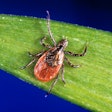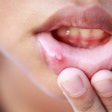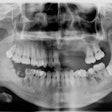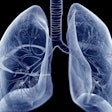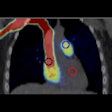
Mouth ulcers may be closely linked to seemingly unrelated physical and psychological conditions, a new study has found. Genetic variants associated with canker sores are also related to inflammatory diseases and depressive symptoms.
Despite being a common oral condition, mouth ulcers are not well-studied and little is known about their cause. That's why an international team of researchers parsed the genes of thousands of people who experience these ulcers.
The researchers found nearly 100 shared genetic variants, some of which are tied to inflammatory diseases, neuroticism, and depressive symptoms. They published their findings in Nature Communications (March 5, 2019).
"Currently, there are few satisfactory drug treatments for mouth ulcers as current medication options are not specific and can lead to side effects," stated Tom Dudding, BDS, one of the study's lead authors, in a press release. "The field has gone from very little genetic understanding of mouth ulcers to having 97 areas of the genome, which provide an excellent basis for future research."
Dr. Dudding and co-lead author Simon Haworth, BDS, are research fellows and doctoral candidates at the University of Bristol Dental School in the U.K.
Far-reaching genetic effects
Recurrent aphthous ulcers, also known as mouth ulcers or canker sores, can be quite painful and may negatively affect patients' quality of life. They are more common among children and young adults, and research suggests that they may be inherited, although previous studies have not investigated specific genetic factors.
“The field has gone from very little genetic understanding of mouth ulcers to having 97 areas of the genome which provide an excellent basis for future research.”
The researchers looked at the genes behind mouth ulcers using data from the U.K. Biobank, a long-term study of how genetic and environmental factors contribute to disease. They then compared the genetic variants found in the U.K. Biobank to data from 23andMe, a private biotechnology company focused on deciphering the human genome, as well as three smaller genetic studies.
People who experienced mouth ulcers had 97 shared genetic variants, the researchers found. These variants were consistent between the U.K. Biobank and 23andMe, and they had a comparable effect in both genetic databases.
Many of these genetic variants were related to the body's immune system, particularly T cells, a type of white blood cell crucial to responding to harmful microbes. In fact, some key variants were also associated with celiac disease, Behcet's disease, ulcerative colitis, and Crohn's disease -- all conditions caused by an inappropriate immune response.
The researchers also found a significant correlation between experiencing mouth ulcers and depressive symptoms and neuroticism. Some genetic variants associated with mouth ulcers act indirectly and are known to contribute to a number of distant individual characteristics, the researchers noted. They hypothesized these variants could be responsible for the link.
Springboard for future research
The study had a number of shortcomings, notably that the researchers relied on self-reported patient data about mouth ulcer experience. They were also unable to account for whether the mouth ulcers were secondary to another diagnosis.
Nevertheless, these shortcomings were relatively minor in light of the data from such a large number of participants, the researchers noted. They hope their research provides a springboard for follow-up studies that provide more insight into the causes and treatments for mouth ulcers. Specifically, future research could investigate how some medications prescribed rheumatoid arthritis, psoriasis, psoriatic arthritis, and Crohn's disease might affect recurring mouth ulcers.
"Importantly, our findings also show that several of the genes related to mouth ulcers are in pathways which are already targeted by drugs that are used to treat other diseases such as rheumatoid arthritis and psoriasis," the authors wrote. "There is the potential that drugs like these could be used to treat mouth ulcers, although further work is required to demonstrate this."










